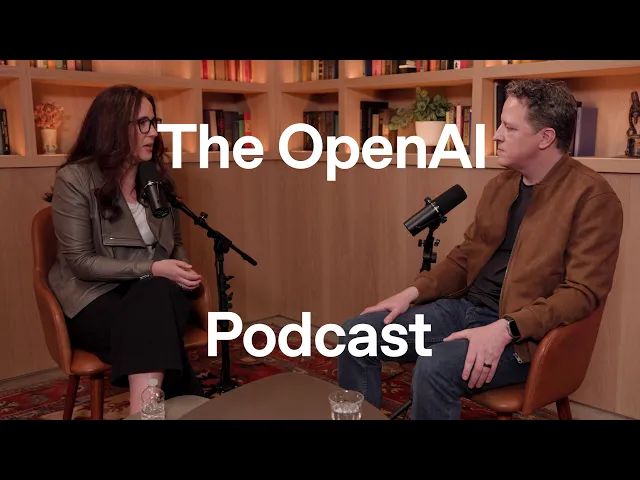Leah Belsky on how AI is transforming education — the OpenAI Podcast Ep. 4

AI's quiet classroom revolution is happening now
In the rapidly evolving landscape of educational technology, artificial intelligence has moved from theoretical discussions into practical classroom applications. Coursera's Chief Enterprise Officer Leah Belsky recently shared her insights on the OpenAI Podcast about this transformation, revealing how AI is already reshaping learning experiences across educational institutions and workplaces. What's particularly striking is how quickly these tools have moved from experimental to essential.
Key Points from Belsky's Perspective
-
AI adoption in education is accelerating rapidly, with tools like GPT being integrated into classrooms and learning platforms at a pace that outstrips previous technology adoption cycles in education.
-
Skills-based education is becoming the new norm, shifting focus from traditional credentials to demonstrable abilities, with AI serving both as a catalyst for this change and a tool to facilitate skills assessment.
-
The role of educators is evolving rather than disappearing, with AI handling content delivery and basic assessment while human teachers focus on coaching, mentorship, and developing higher-order thinking skills.
-
Corporate learning is being transformed by AI-powered tools that personalize learning pathways and help employees develop skills specifically aligned with organizational needs and career aspirations.
-
Ethical considerations and AI literacy need to be integrated into educational frameworks, ensuring both educators and students understand how to use these tools responsibly.
The Hidden Transformation
The most profound insight from Belsky's discussion isn't about the technology itself but about the fundamental shift in educational philosophy it enables. Traditional education has long been constrained by scalability issues—the best instructors could only reach limited audiences, and personalized instruction was prohibitively expensive for most learners. AI is removing these constraints, democratizing access to personalized learning experiences.
This matters immensely because education has historically been a field resistant to technological disruption. While industries from retail to healthcare have been transformed by digital tools, education has maintained many of its centuries-old practices. The rapid adoption of AI tools signals that we're witnessing a rare inflection point where technology isn't just enhancing traditional education but fundamentally reimagining it.
Beyond the Podcast: Real-World Applications
What Belsky's conversation doesn't fully explore are the emerging hybrid models already showing promising results. Georgia Tech's online Master's in Computer Science program represents one compelling case
Recent Videos
How To Earn MONEY With Images (No Bullsh*t)
Smart earnings from your image collection In today's digital economy, passive income streams have become increasingly accessible to creators with various skill sets. A recent YouTube video cuts through the hype to explore legitimate ways photographers, designers, and even casual smartphone users can monetize their image collections. The strategies outlined don't rely on unrealistic promises or complicated schemes—instead, they focus on established marketplaces with proven revenue potential for image creators. Key Points Stock photography platforms like Shutterstock, Adobe Stock, and Getty Images remain viable income sources when you understand their specific requirements and optimize your submissions accordingly. Specialized marketplaces focusing...
Oct 3, 2025New SHAPE SHIFTING AI Robot Is Freaking People Out
Liquid robots will change everything In the quiet labs of Carnegie Mellon University, scientists have created something that feels plucked from science fiction—a magnetic slime robot that can transform between liquid and solid states, slipping through tight spaces before reassembling on the other side. This technology, showcased in a recent YouTube video, represents a significant leap beyond traditional robotics into a realm where machines mimic not just animal movements, but their fundamental physical properties. While the internet might be buzzing with dystopian concerns about "shape-shifting terminators," the reality offers far more promising applications that could revolutionize medicine, rescue operations, and...
Oct 3, 2025How To Do Homeless AI Tiktok Trend (Tiktok Homeless AI Tutorial)
AI homeless trend raises ethical concerns In an era where social media trends evolve faster than we can comprehend them, TikTok's "homeless AI" trend has sparked both creative engagement and serious ethical questions. The trend, which involves using AI to transform ordinary photos into images depicting homelessness, has rapidly gained traction across the platform, with creators eagerly jumping on board to showcase their digital transformations. While the technical process is relatively straightforward, the implications of digitally "becoming homeless" for entertainment deserve careful consideration. The video tutorial provides a step-by-step guide on creating these AI-generated images, explaining how users can transform...
